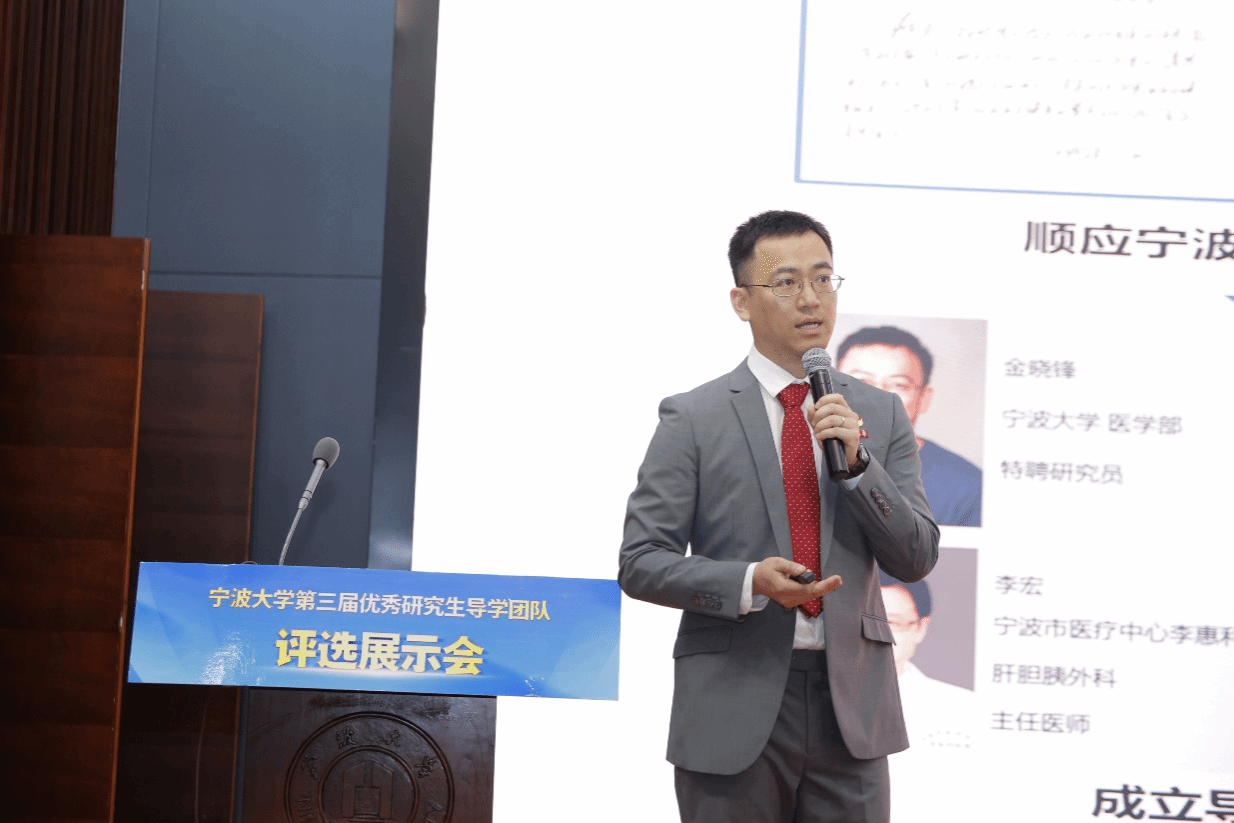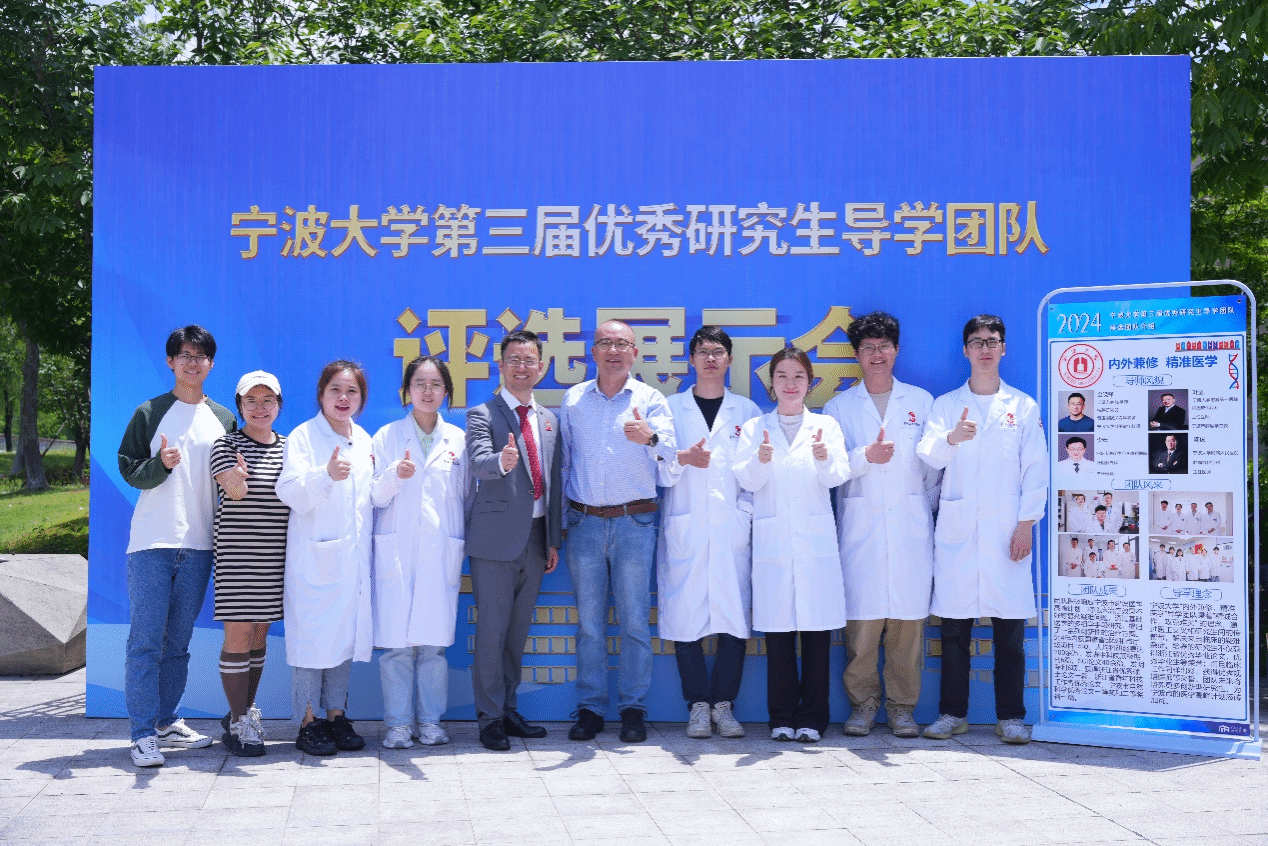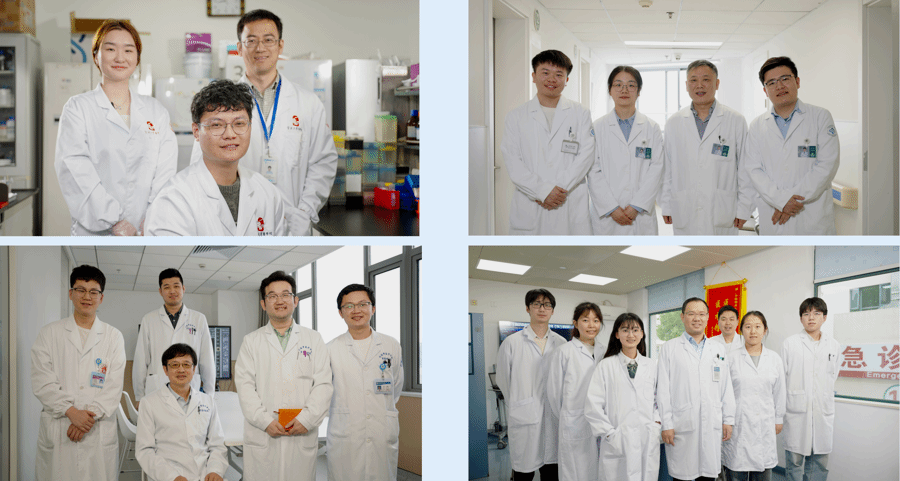To thoroughly study and implement the spirit of the Party's 20th National Congress, fully fulfill the responsibilities of graduate mentors in fostering virtue through education, strengthen the construction of teacher ethics, and fully play the exemplary and leading role of advanced models. On the morning of May 29, the selection exhibition meeting for Ningbo University's third "Outstanding Graduate Student Mentoring Team" was held in the Sincere Library auditorium. The "Internal and External Cultivation, Precision Medicine" mentoring team led by specially appointed researcher Jin Xiaofeng from the Health Science Center won the honor of "Outstanding Graduate Student Mentoring Team."


The tumor team is led by specially appointed researcher Jin Xiaofeng, Professor Ye Meng, Director Li Hong, and Director Chen Jun, primarily engaged in cancer research. The team currently has 4 mentors and 14 master's students.
Focusing on clinical issues such as the high recurrence rate of tumors and drug resistance in late-stage tumors, the precision medicine tumor team conducts subtype analysis of tumors through proteomics and transcriptomics, and provides new ideas for tumor stratification and precise treatment through in-depth mechanism research. In the past five years, the team has received 2 national projects, 3 provincial funds, and 2 Ningbo city projects, including one key project, and has published 6 papers in top tier one journals of the Chinese Academy of Sciences and more than 16 papers in second tier or higher journals. Team leader Jin Xiaofeng is recognized as one of Ningbo University's most beautiful young teachers, a leading talent in youth scientific and technological innovation in Ningbo city, a top-notch youth scholar supported by the Y.K.Pao Foundation at Ningbo University, and has also received first prize for excellent natural science papers in Ningbo city, and honors for outstanding papers in Zhejiang province.
The team's related research results have applied for patents, hoping to provide new ideas for precise treatment of cancer patients. For example, in patients with large B cell lymphoma, mutations in the SPOP gene may lead to abnormal activation of the NF-κB signaling pathway, and the use of inhibitors of this signaling pathway may help improve treatment outcomes for patients with SPOP mutations (Leukemia, 2021). In prostate cancer patients, the team discovered that the SPOP-HIPK2 signaling axis plays a role in the DNA damage repair signaling pathway, providing a new idea for the combined use of PPAR inhibitors and SPOP inhibitors in late-stage patients (Nucleic Acids Research, 2023). In liver cancer patients, the team found that abnormally high expression of BCLAF1 leads to immune therapy resistance, while the combined use of BCLAF1 inhibitors and durvalumab helps improve treatment outcomes (Cellular and Molecular Life Science, 2024).
The team aims to provide new molecular stratified treatment theories for precise treatment of clinical patients, improving their treatment outcomes.
